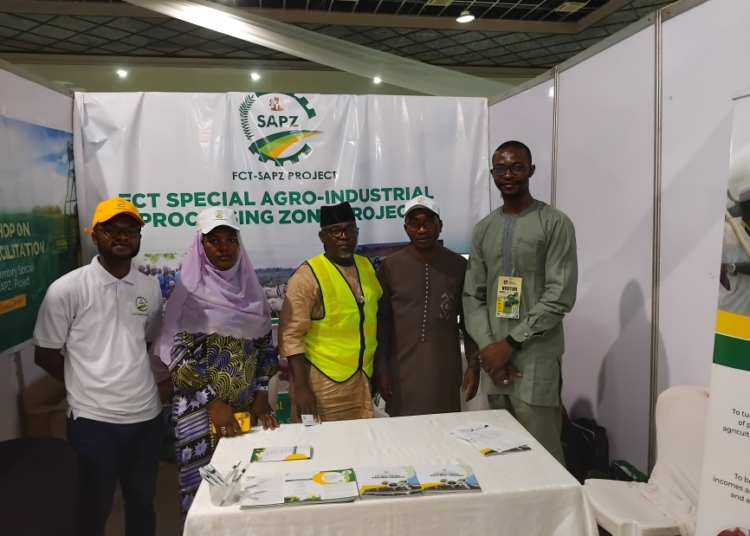The Federal Capital Territory (FCT) Special Agro-Industrial Processing Zone (SAPZ) has cautioned farmers against excessive chemical use on farm products.
Speaking, Prof. Toba Anjorin, Director of the service at the University of Abuja and consultant of Integrated Pest Management, acknowledged the importance of chemical pesticides and fertilisers in modern agriculture and emphasised the need for farmers to use these chemicals judiciously and by recommended guidelines.
Anjorin disclosed this on Wednesday in Gwagwalada during the training session of farmers on integrated pest management, saying excessive use of chemicals on farm products can pose significant risks to consumers, including exposure to toxic residues, and can also harm the environment through soil and water pollution.
He advised farmers to adopt integrated pest management (IPM) practices that combine physical, cultural, biological, and chemical controls to minimise the use of chemical pesticides and fertilisers.
“By using chemicals responsibly and adopting sustainable agricultural practices, farmers can improve the quality and safety of their produce, reduce environmental pollution, and promote sustainable agriculture”.
The Ruler Institutions Development Secretariat Officer, FCT-SAPZ, Muhsin Gambo Lawal, emphasised the need for farmers to shift from traditional pest control methods to more sustainable and environmentally friendly approaches.
IPM techniques, such as crop rotation, biological control, and cultural controls, were highlighted as effective ways to manage pests without harming the environment.
He explained that the project aims to support smallholder farmers within host communities by establishing Agricultural Transformation Centres and Agricultural Industrial Hubs. To ensure the success of these centres and hubs, we need to build the capacity of smallholder farmers to enhance their productivity.
“As part of our intervention, we provide training on integrated pest management (IPM) to smallholder farmers. IPM aims to minimise inputs and maximise outputs, reducing the reliance on chemical pesticides and fertilisers”.
According to him, farmers often spend excessive amounts on inputs, including pesticides, which can be toxic to crops, the environment, and human health. IPM training teaches farmers alternative techniques, such as cultural, mechanical, biological, and sanitation methods, to reduce costs and contamination.
“We have conducted IPM training sessions in Karish and Payko, with positive responses from farmers. A total of 242 farmers have been trained, and we plan to extend the project to other states. Our approach includes building the capacity of extension service providers and facilitators to ensure sustainability and scalability.
“We have trained 121 farmers in Karsh and another 121 in Paiko Gwagwalada reserves, covering 16 host communities. Our training programs are designed to equip smallholder farmers with the knowledge and skills needed to improve their productivity and contribute to the success of the Agricultural Transformation Centres and Agricultural Industrial Hubs,” he said.
In the same vein, The Agric Productivity Officer, APO SAPZ, Haruna Maisamari Umar, said the main focus of their training program is Integrated Pest Management emphasis on IPM is driven by the need to educate farmers on the risks of excessive chemical use in their farming practices.
Umar explained, “We are training our farmers to avoid excessive use of chemicals and adopt cultural controls and other sustainable methods”.
The training program has already shown promising results, with 222 participants from 7 communities completing the training. Yesterday, another 222 farmers were trained, and these participants will now serve as representatives, sharing their knowledge with other farmers in their respective communities.
“By promoting IPM practices, the program aims to reduce chemical use’s environmental and health impacts, improving crop yields and promoting sustainable agriculture”.
One of the participants, Stephen Eunice from Dobi, said she now knows how to manage and control crops and animals effectively. “I’m excited to return to my farm and replicate what I’ve learned here. This knowledge will improve my farming practices and increase my yields.”
Another participant, Zakari Baba, said the training program on Integrated Pest Management (IPM) has empowered him and other farmers with the knowledge and skills to manage their farms.





